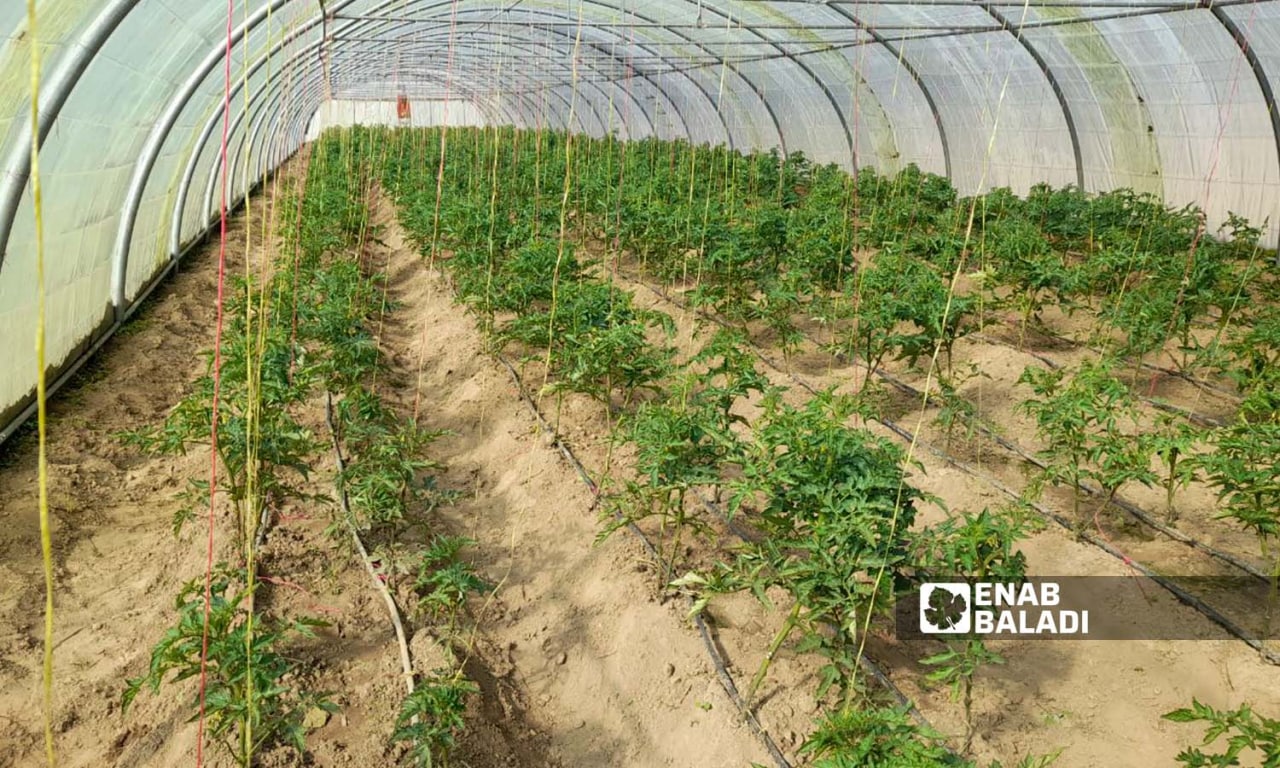



Enab Baladi – Hussam al-Omar
Every evening, Amina al-Mohammed collects pots that can be filled with water and sits near the faucet, waiting for the water to come, to fill what she can fill to meet the needs of her house the next day.
Al-Mohammed, 35, a resident of al-Diriyah neighborhood on the outskirts of the western city of Raqqa, told Enab Baladi that the residents’ suffering from the lack of water increased due to the spread of the phenomenon of irrigating household orchards with drinking water.
Some residents in the city of Raqqa watered small orchards inside their homes with drinking water, which caused some other homes to be deprived of water, she adds.
The problem is repeated in most of the neighborhoods of Raqqa, which are located on the outskirts of the city, and the houses are characterized by large areas that may exceed 500 meters in most of them, including the neighborhoods of al-Hasaiwa, al-Romaniah, Rumaila, al-Mashlab, and al-Sabahia.
Residents of these neighborhoods have to wait until late at night to be able to get water as the pressure on the main water pipes recedes.
In an opinion poll conducted by Enab Baladi, a number of residents of al-Diriyah neighborhood said that the problem exists throughout the year, but it exacerbates during the summer, with the increase in the need for water and the increase in people irrigating their home orchards from drinking water networks.
Musallam al-Ali, 36, a resident of al-Diriyah, told Enab Baladi that he submitted an official complaint to the municipality of Raqqa with a number of his neighbors, calling for strict measures against people who use drinking water to irrigate orchards.
Al-Ali explained that they had received promises from municipal officials to solve the problem soon and to send field patrols to inspect the orchards and remove existing violations.
Most of the water networks and pipes in the city of Raqqa have been sabotaged as a result of the war operations that the city has witnessed during the past years. As a result, the Water Bureau in Raqqa repaired them with funding from international organizations operating in the city.
One of the employees of the Anti-Violations Department of the Water Bureau in Raqqa told Enab Baladi that the office, after the residents submitted several complaints, conducted field tours to uncover these violations.
He added that the Water Bureau organized financial violations against people who illegally draw water and warned them to uproot crops if the violation was repeated, or they continued to irrigate orchards and did not stop the excessive use of drinking water.
The city of Raqqa depends on the Euphrates River to provide drinking water for the residents of the city and the villages and towns near the river, and the water is pumped by pumps located on the banks of the river towards the city’s neighborhoods and its countryside.
The daily per capita need for water is estimated between 50 and 100 liters, used for drinking and personal and domestic needs. Unclean water and poor sanitation are the main cause of child deaths, and children’s diarrhea is closely associated with insufficient water supply, inadequate sanitation facilities, and water contaminated with infectious diseases, and poor hygiene practices, according to the United Nations.
It is estimated that diarrhea kills 1.5 million children annually, most of whom are children under the age of five who live in developing countries.
if you think the article contain wrong information or you have additional details Send Correction